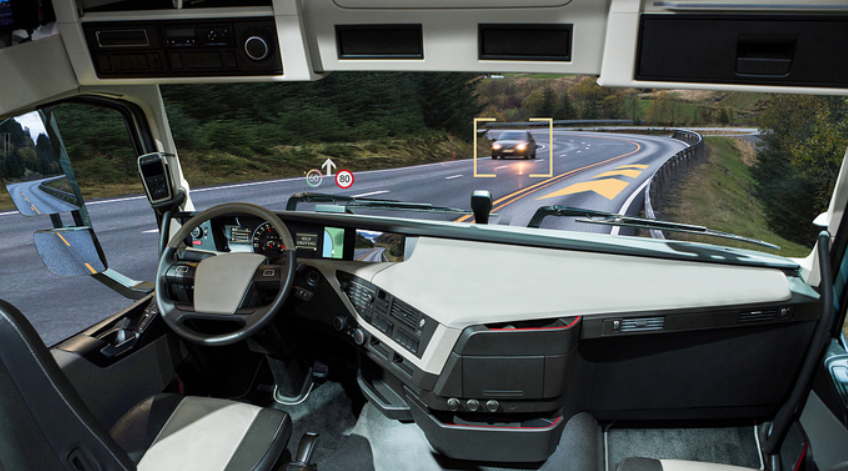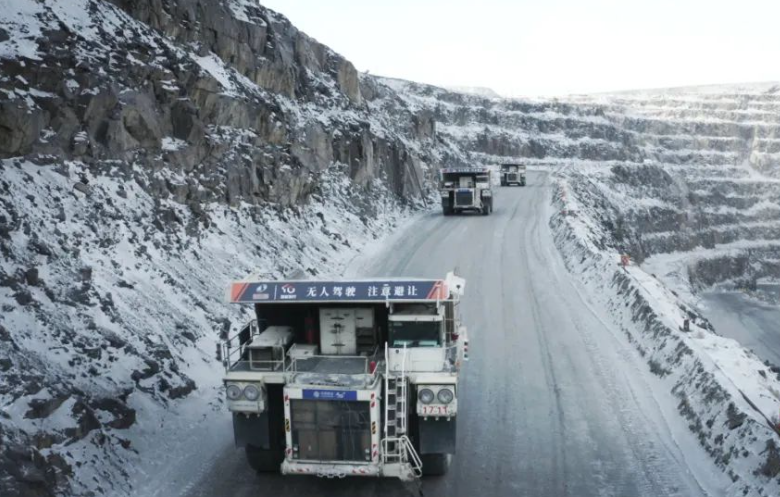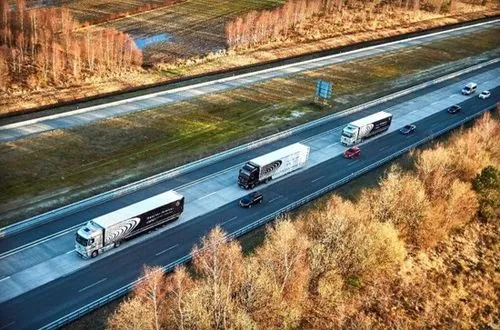
By Greg Gao
Autonomous trucks take off rapidly in China’s commercial operations as tech giants and self-driving startups in the country ramp up efforts to test and mass-produce autonomous heavy-duty trucks in mining and logistics sectors, said a recent JW Insights report.

More and more heavy-duty trucks with high-level autonomous driving capability are going to hit the road in China’s mines, ports, specific industry parks, and logistics sectors. Unlike the delay in the commercialization of high-level autonomous driving in the passenger vehicle field, there is a vast market potential for autonomous driving technology in the commercial vehicle segment.
Wang Qingyun, marketing director of i-tage(踏歌智行), a mining autonomous driving fleet startup, pointed out that mining is undoubtedly the most suitable scene for the commercialization of unmanned driving technology and will be the first to achieve large-scale deployment.
He added that compared with urban roads, the mining environment road is closed, and there are no traffic regulations problems like on open roads. The routes are relatively fixed, and the vehicle speed is mostly lower than 40km/h. In addition, unmanned driving in mining operations has a clear and controllable procedures guide, and the business model is straightforward. As one of the earliest unmanned mining vehicle suppliers in China, i-tage currently cooperates with leading mining companies and auto OEMs, and has basically realized the commercialization of L4-level unmanned driving in mining areas.

In addition to mining operations, high-level autonomous trucks are also rapidly deployed in specific scenarios such as ports, docks, and airports. In April this year, Chinese heavy-duty truck manufacturer Sinotruk’s Level 4-class electric trucks were put into operation in north China’s Tianjin Port. Recently, automaker Dongfeng delivered the first batch of autonomous container trucks to its customer in Xiamen Port. UISEE(驭势科技), an autonomous driving startup, teamed up with Guangzhou Baiyun airport to promote the pilot operation of unmanned vehicles.
Wang Qingyun told JW Insights that introducing unmanned driving technology into mining operations can bring significant safety improvements, direct cost reduction and efficiency enhancement. In mining operation under 24-hour operation, a mining truck needs to be equipped with three to four drivers. Using unmanned trucks can greatly reduce the accident rate and save the cost of mining, transporting, and dumping. The overall profit level of open-pit mine operations can be increased by 15-20%.
The autonomous driving trucks in line haul logistics will also usher in a golden age. The relatively standardized road environment of expressways makes line haul logistics another considerable market for autonomous driving vehicles.

DeepWay, a joint venture company created by Chinese tech giant Baidu and Lionbridge in 2020 to focus on autonomous driving electric heavy-duty trucks, raised RMB460 million (around $67.2 million) in a Series A led by Qiming Venture on August 25. Inceptio Technology(嬴彻科技), an autonomous driving truck startup, announced the closing of a $188 million Series B+ equity financing in February, led by Sequoia Capital China and Legend Capital.
Chinese tech giant Alibaba announced in June that it had received approval to test its Level 4 self-driving trucks, without a driver behind the steering wheel, on open roads in Deqing county, east China’s Zhejiang province.
There are also many daunting challenges for the commercialization of autonomous driving trucks. Due to the heavy load and long braking distance of trucks, a longer sensing distance is required; the truck is wider and some have a trailer, which requires higher lateral accuracy than passenger cars, and requires a higher sensor layout. These challenges must be overcome from the aspects of high computing power chips, Lidar, and software algorithms. It is not enough to rely on single-vehicle intelligence, vehicle-road-cloud coordination is required, and supporting facilities need to be built, an industry expert noted.
The development of autonomous driving technology for commercial vehicles is advancing at full speed. But due to the complexity of autonomous driving technology and the ultra-high safety and reliability requirements, it is necessary to consider not only technological progress, but also laws and regulations, and the construction of supporting facilities. It is far from enough to rely on individual manufacturers, and the joint efforts of the entire industry chain are required, JW Insights concluded.








